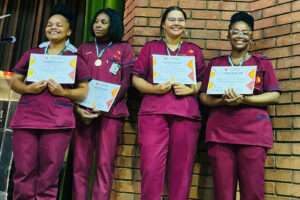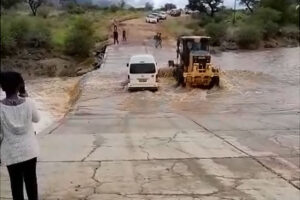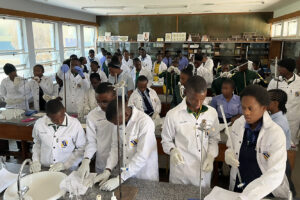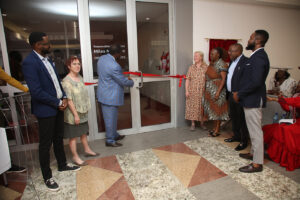The Agri-PV Project, a pilot initiative supported by the GIZ INSPIRED AGRI-PV, recently hosted a workshop at the UNAM Ogongo Campus. This project aims to investigate the suitability of Agri-PV systems as a climate-adapted and profitable solution for sustainable energy, vegetable, and fruit production in Namibia.
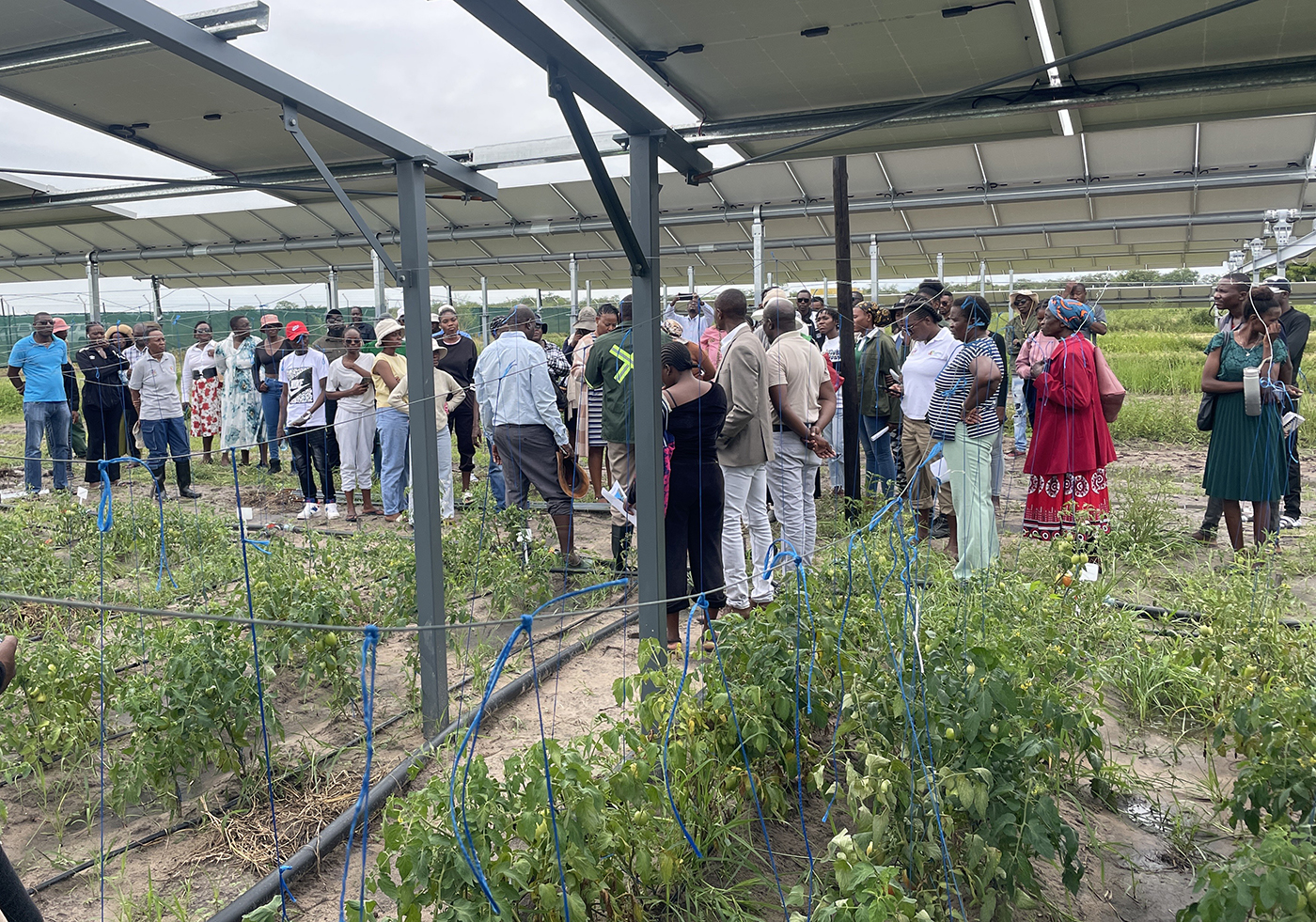
The workshop brought together 95 participants from the Ministry of Agriculture, Fisheries, Water and Land Reform (MAFWLR), UNAM, Regional Councils and local farmers.
The main aim of the event was to promote land sustainability by educating farmers on how to effectively utilize their land for both crop production and electricity generation from sunlight. This method not only optimizes land but also enhances crop production by providing shade, mitigating heat stress, and promoting water conservation. In the northern central regions of Namibia, where water is limited and energy costs are high, this technology has the potential to be a transformative advancement.
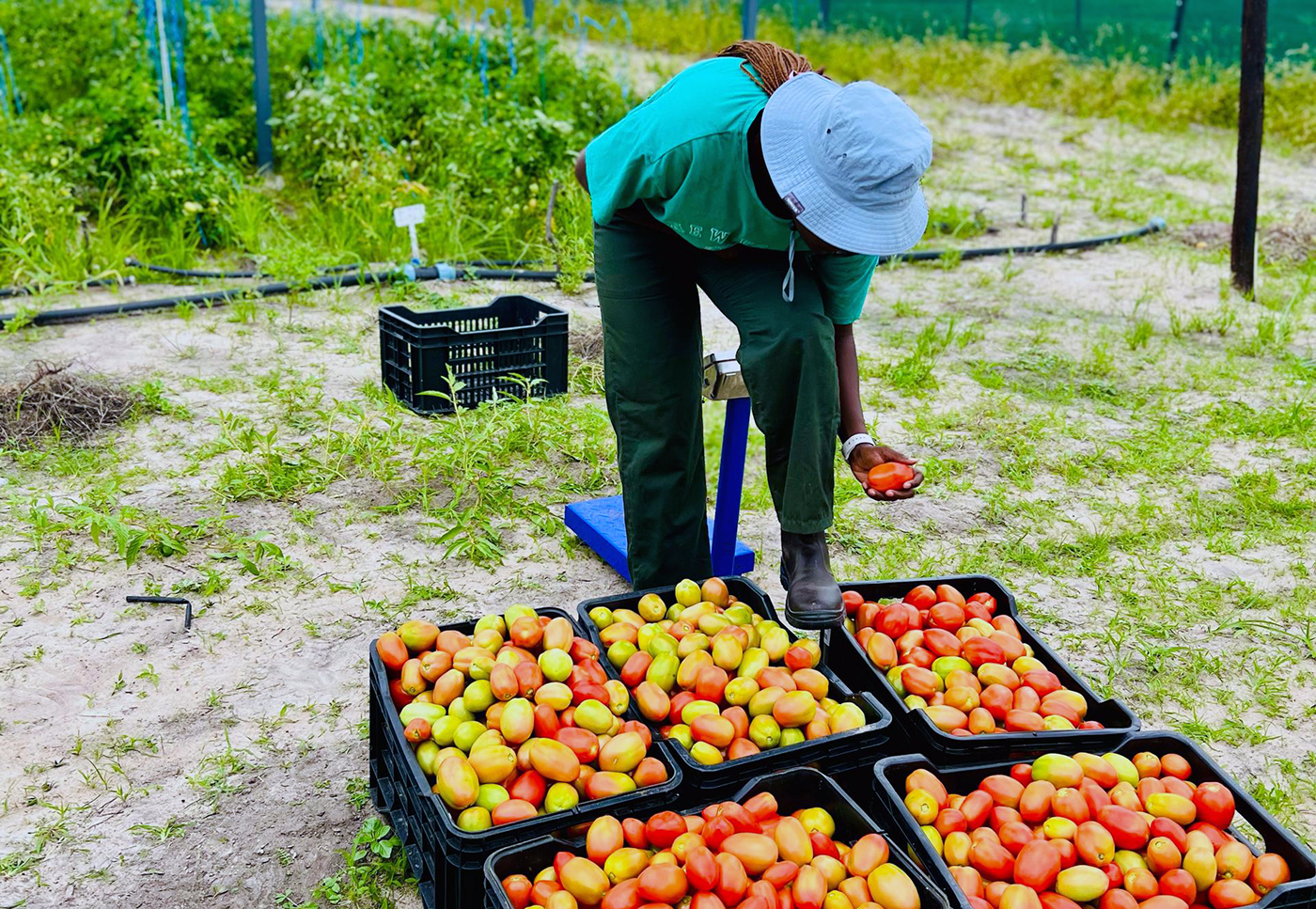
The participants were, for the first time, exposed to tomato production under different Agri-PV systems. They also had an opportunity to discuss at length with researchers the Agri-PV production technologies and factors affecting vegetable production in the region.
Many farmers arrived unsure about what to expect. At first, they were quite reserved; some appeared skeptical. However, as the workshop progressed and they were presented with concrete examples from the field, their interest grew. They asked questions, shared their own experiences, and began to see how this could work on their own respective farms.
Project lead Dr. Petja Dobreva, who serves as a Senior Lecturer in the UNAM Physics Section under the Department of Physics, Chemistry, and Material Science, expressed that by integrating electricity production with agriculture and training farmers in the dual use of land, UNAM’s Agri-PV project empowers local farmers with new skills for long-term farming resilience through stabilizing incomes (via crop and energy sales), strengthening food-energy security, and improving community livelihoods and technology access.
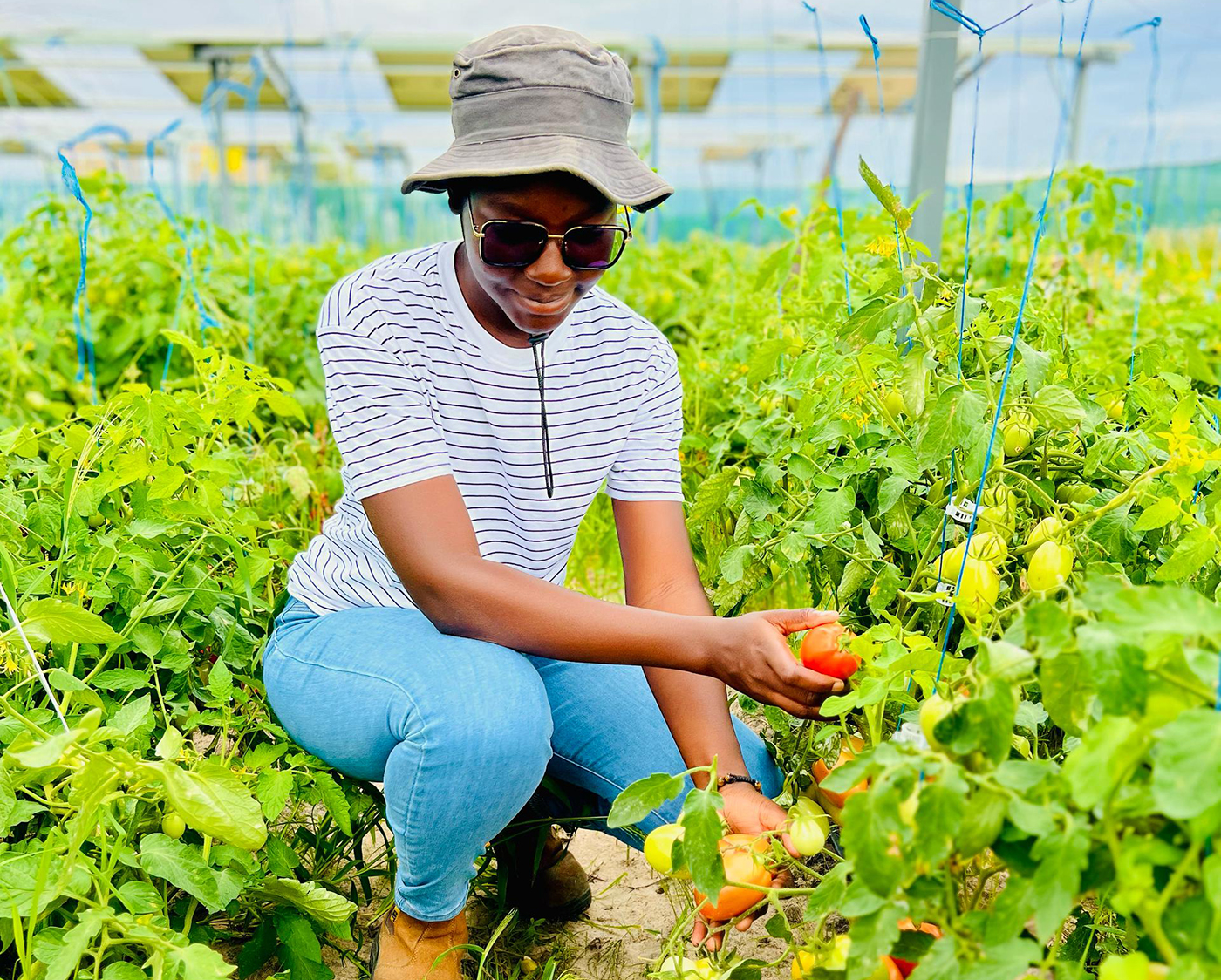
By prioritizing farmers, the Agri-PV Project is assisting them in finding new ways to cultivate food, generate income, and build resilience against climate challenges.
The workshop also covered drip irrigation, pest and fertilizer management, and where to get affordable materials. It gave farmers not just knowledge, but practical tools and support.
The lead organizer of the workshop, Prof. Simon Awala, who serves as Head of Department and Professor in the UNAM Department of Crop Production and Agricultural Technologies, stated, “As Agri-PV is still a new technology in Namibia, the farmers would require specific training activities, for example, construction, ploughing under panels, setting up irrigation systems, and maintaining the systems.”
The farmers gave constructive feedback towards the workshop, highlighting the necessity to conduct the training during the dry season when there is no rain, ensure the availability of translation services, and increase the number of crops to be cultivated under Agri-PV, among other considerations.
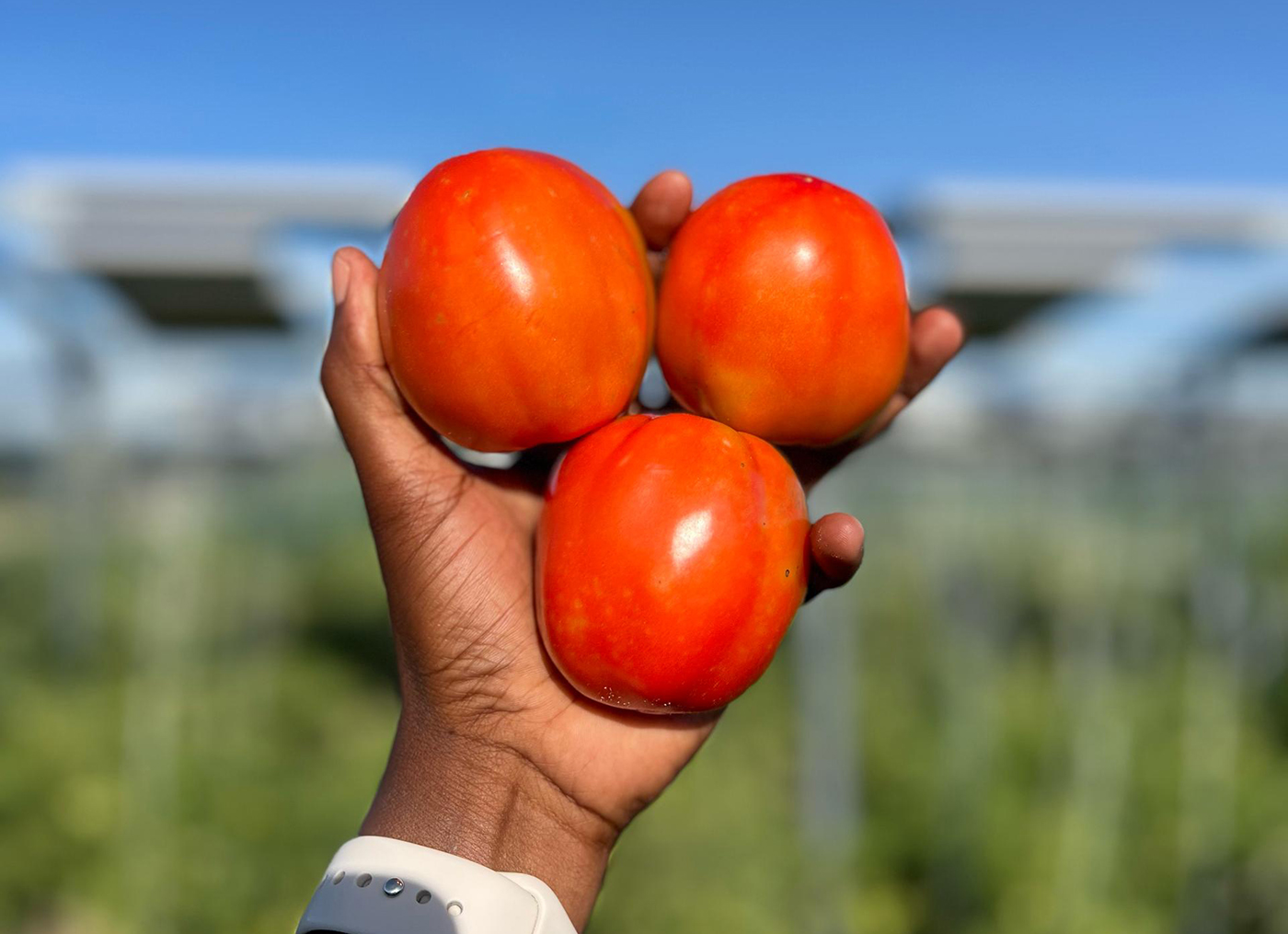
Acknowledgements:
We extend our sincere gratitude to GIZ and the UNAM Ogongo Campus management for their diligent efforts making this event possible.
The workshop was successfully conducted by Dr. Petrus Ausiku, Dr. Bertha Mudamburi, Mr. Jonas Chigariro, Mr. Konis Elungi, Mr. Cecil Togarepi, Mr. Sackeus Nakanyala (GIZ), Dr. Christopher Mberema, Mrs. Hilaria Iipinge and Project MSc students Jacqueline Valombola, Anna Unandapo, and Muhau Simamuna.


